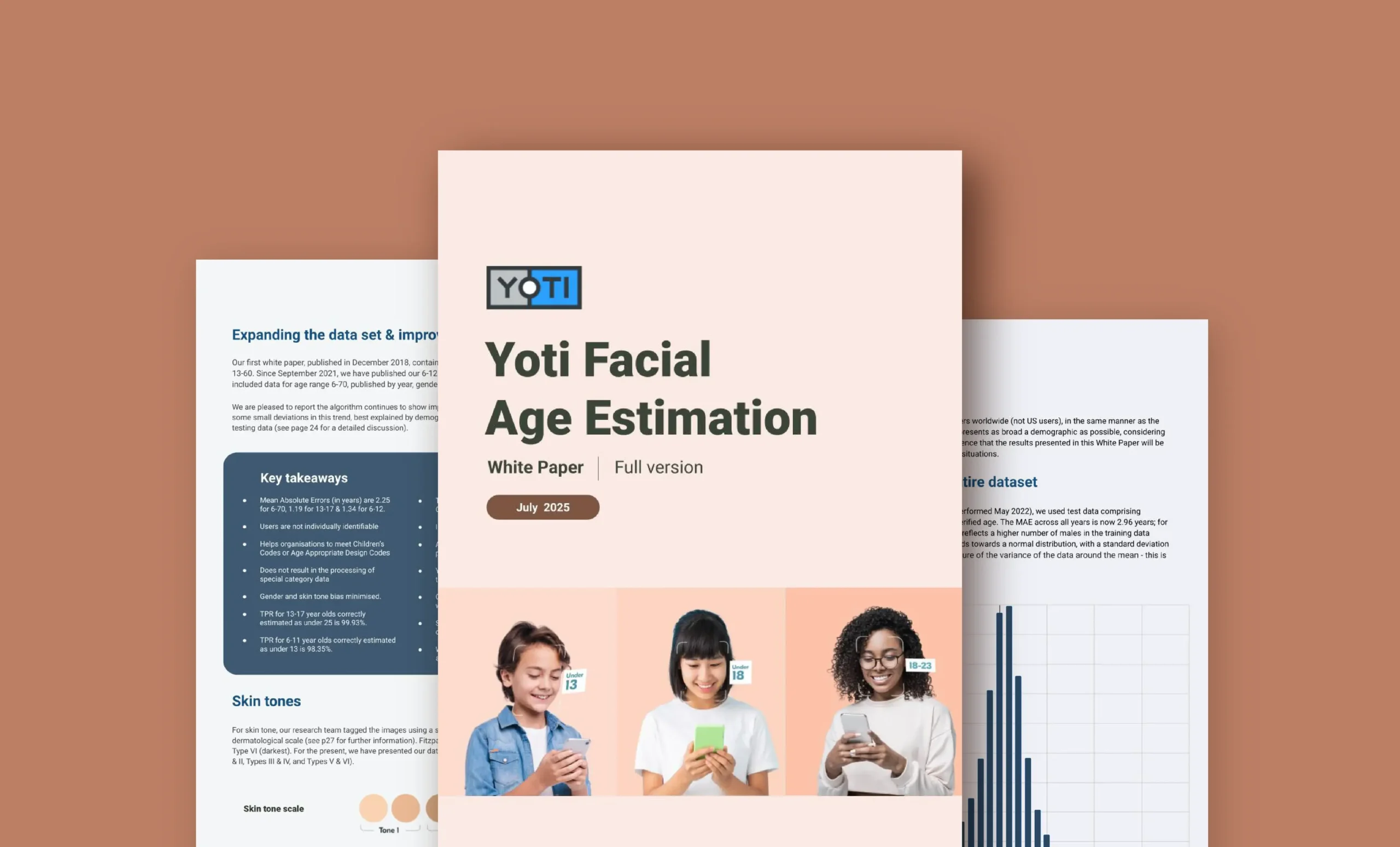Thoughts from our CEO
In this blog series, our CEO Robin Tombs will be sharing his experience, whilst focusing on major themes, news and issues in the world of identity verification and age assurance. This month, Robin talks about Digital ID app downloads, Yoti becoming an Orchestration Service Provider and NIST ranking our latest facial age estimation model in first place for 13-16 year olds. Insights into Digital ID use following the Online Safety Act From Friday 25th July, the UK’s Online Safety Act required many businesses across the porn, social media, livestreaming, dating and some gaming sectors to perform age checks.
Yoti is now a certified Orchestration Service Provider (OSP) under UK Digital Identity and Attributes Trust Framework
Yoti is now a certified Orchestration Service Provider (OSP) under the UK’s Digital Identity and Attributes Trust Framework (DIATF), just weeks after the UK Data Act received Royal Assent. Following a rigorous audit to ensure compliance with the UK DIATF’s strict requirements for OSPs, we have been awarded this certification by the Kantara Initiative. This milestone builds on our commitment to deliver trusted, secure, and inclusive digital identity solutions for people and businesses across the UK. Simple and inclusive access to trusted digital IDs Digital IDs are no longer the future, they’re here. We’ve had over 6.5m downloads
Thoughts from our CEO
In this blog series, our CEO Robin Tombs will be sharing his experience, whilst focusing on major themes, news and issues in the world of identity verification and age assurance. This month, Robin focuses on the Online Safety Act, talking about facial age estimation accuracy rates, the increase in Digital ID usage and reaction to the new legislation coming into effect. Online Safety Act sparks Digital ID boom The UK’s Online Safety Act came into effect on Friday 25th July, delivering some bumper results for Yoti. We launched our “Porno Pete” video across TikTok, YouTube, Instagram and Facebook
Meet our anonymous facial age estimation technology
We developed our facial age estimation technology to provide a secure and private way to prove your age, without sharing identity documents or personal details like name or date of birth. It’s fast, accurate and anonymous. Here’s how our facial age estimation technology works, how it’s designed and why it’s one of the most privacy-friendly solutions available. What is facial age estimation? Facial age estimation is a safer and easier way to prove your age to access age-restricted goods, services and content. Completing a facial age estimation takes seconds – all you need to do is take a
Facial Age Estimation white paper
Making it faster and safer to prove your age Our age estimation technology accurately estimates a person’s age by looking at their face. We built it to give everyone a secure and private way of proving how old they are in different everyday scenarios: from age checking on social platforms and online stores, to supermarket self-checkouts, bars and clubs. This privacy-friendly approach to age verification doesn’t require any personal details or documents, and all information is instantly deleted once someone receives their estimated age – nothing is ever viewed by a human. Key takeaways
Thoughts from our CEO
The BritCard debate heats up as digital ID adoption grows Just a few months after the UK Government introduced a voluntary digital ID wallet, some influential voices within Labour are already pushing to make it mandatory. They’ve also suggested rebranding it as the ‘BritCard app’ or ‘BritCard digital ID wallet’. In the 2 years between late 2025 and late 2027, I believe many (potentially a majority) of the UK’s 57 million adults will get a UK Government digital ID wallet. From late 2025, users will be able to access their mobile driving licence details. By the end of






